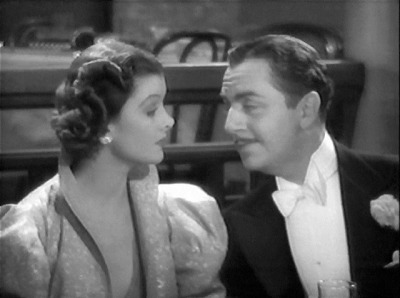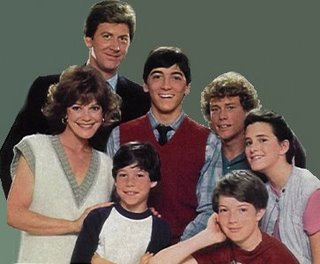It's a very daunting thing to be a guest blogger anywhere, let alone someone the blog of someone you respect. One does not want to have the blogger come back to a barrage of comments objecting to the content provided by the guest. Add into the equation that I'm a woman posting on a man's blog. While I won't regale you with stories of things my children did (they are all 12 and over now, and what they do isn't cute anymore), I won't be able to sound like one of those Very Astute Male Theologian Types.
I tried to think about what it is that I know of Gummby, and what would be interesting to his readers. Nick suggested that I write a poem in Greek, but I don't know enough Greek to do that. And besides, the bad poetry is Nick's department.
No, I won't go into Greek today, but later this week I might just talk about the benefits of teaching Greek to the Little Ankle-Biters in your family.
What I want to say today is inspired by a group of teenagers who were in my home last night for a bible study. We are studying Philippians. We dealt mainly with the first eleven verses or so, and talked about fellowship and partnership in the gospel. It was good. The second part of the evening, the kids wanted to possibly discuss a book together. We haven't decided which one. My suggestion was the book
Thinking Like a Christian, by David Noebel. They looked thoroughly bored when I gave a brief overview. Then the suggestion was made to read the book
Don't Waste Your Life, by John Piper. I have that book, and it is good. However, it was decided by one of the students (a female one) that she didn't find Piper all that appealing. She finds him harsh at times. I think this is a female thing. I find him a little harsh at times, too, but the longer I am a Christian, the longer I realize that we need people who are good at saying hard things. A seventeen year old girl who is fairly sensitive and tender may balk at what Piper says. I think someday she will be ready to hear his message. She took exception mostly to his discussion of suffering, something she heard him discuss in a video series she watched. This is a sensitive issue. We decided that since we could not be all agreed, that we would not discuss it.
The next option was to discuss a book called
Growing Up Christian, by Karl Graustein. It talks about the dangers of becoming complacent as Christians because we grow up in the fish bowl of the church. It is an excellent book. One of the chapters that I described to them was about the danger of Christian kids becoming insensitive to their sin. Because Christian kids tend to be monitored by their parents closely, have fellowship with other Christians, and are taught the Scripture regularly (or at least, they ought to be), they can become lazy about sin, and compare themselves to the world rather than Christ. This led to a discussion about sin, and a realization on my part that these kids need to understand their sin.
All of the kids at the bible study have been raised in Christian homes. They have attended church, Sunday School, and other events since birth. They are already becoming insensitive to sin. When I mentioned how the Puritans viewed sin, they all objected to the Puritans as a whole. The Puritans didn't recognize God's love (not true); the Puritans were legalistic and harsh (possibly true), and the Puritans were kind of "messed up" (maybe some of them; I'm thinking of those dudes in Salem, MA, example). However, the Puritans did indeed see their own sin. Read the
Valley of Vision when you have a chance, and you will see in their writings very clear understanding of who they were before God. Their lack of love for the Puritans aside, I did sense a real reluctance to admit the seriousness of sin.
"Why don't we just focus on the goodness of God instead?" was the plea. "Because we can't appreciate God's goodness unless we recognize our own sin," was my response.
These kids live and were brought up in a world that is so politically correct, it hesitates to use the word "sin." Most of the have attended public schools, a place where self-esteem is the highest calling. Even my own daughter, a member of this group who has only been in public high school for a year now balked at the notion of her own sin.
Home school families have the distinct advantage of having the freedom to teach that their children are sinners. There is no one telling them that if they don't stop it they will mess up their kids. There is no teacher telling them that their tendency to lash out at people is because they are having a "bad day" or they are "misunderstood." Don't be afraid to teach your kids that they are sinners, regardless of where they attend school. Learning to understand my own sin has helped me immeasurably in understanding why I do things, and in responding to others. We don't use it as an excuse, but we use our understanding of our sin to emphasize daily our need to depend on God. We are helpless to battle win without it.
 Listen to the MIDI melody here.
Listen to the MIDI melody here.

